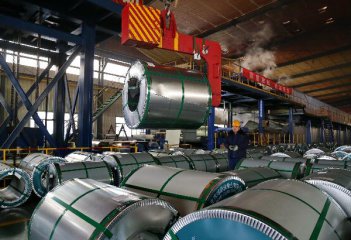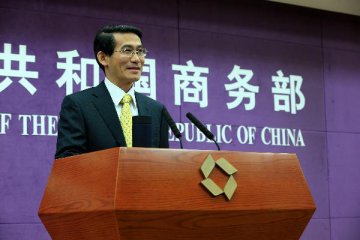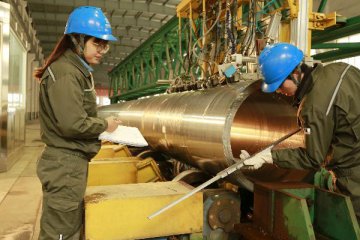
The U.S. formally initiated an investigation of China under Section 301 of the Trade Act of 1974 on August 18 local time. “The investigation will seek to determine whether acts, policies, and practices of the Government of China related to technology transfer, intellectual property, and innovation are unreasonable or discriminatory and burden or restrict U.S. commerce,” the USTR’s Office said in a statement. Insiders pointed out that it is the first Section 301 investigation that the U.S. triggered over China’s protection of intellectual property rights (IPRs) and the first tough trade measure on China after President Trump took office. It may have negative influence on China’s communication equipment, integrated circuit and other technology industries.
Experts believe that the unilateral Section 301 investigation by the U.S. is to increase its negotiating power out of its economic and political considerations and can be considered as a blasting fuse to a trade war. However, the Section 301 is also governed by laws and China can solve it through the WTO dispute settlement mechanism. China should also prepare counter measures.
Based on the U.S. investigation announcement, it should submit written opinions and apply for hearings before September 28 and the Section 301 committee will hold a hearing in Washington D.C. on October 10, indicated Yang Cheng, a senior partner with Jincheng Tongda & Neal. “The USTR will make decisions within 12 months after the initiation of the investigation based on relevant laws about the Section 301 investigation.”
Yang indicated that based on Section 301, if the USTR believes that the unfair measures under investigation are “compulsory”, it shall take actions on them. If they are “discriminatory”, the USTR may take appropriate and reasonable actions at its discretion.
“Based on past practices, the USTR may impose tariffs or other import restrictions on the products or services from the country under investigation for certain period or sign restrictive agreements to make the country promise to abolish relevant regulations and policies.”
“The Section 301 investigation is a macro policy and law on China’s IPRs. It currently has no significant effects on Chinese enterprises as it is still under investigation. It is uncertain about the possible actions to be taken by the U.S. government and it is difficult to estimate the effects on Chinese enterprises in the future,” said Yang.
Chinese government’s strategies on promoting the development of high-tech industries through the introduction of technologies and independent innovation as well as other relevant policies may be investigated, indicated Liang Guoyong, an economic affairs official at the UN Conference on Trade and Development. China’s high-tech industries and enterprises, communication equipment, integrated circuit and other ley industries as well as leading homegrown enterprises in such industries in particular, may be investigated.
“Currently, there are two possibilities, either the two countries will reach an agreement or the U.S. will take actions based on the result.” Liang pointed out that the U.S. government committed that it would implement Section 301 under WTO rules. As a result, the U.S. sanctions will be conducted under the WTO framework. The final result will depend on the battle between China and the U.S. under the WTO dispute settlement mechanism.
As for whether the U.S. will take sanction actions against China, Yang pointed out that Section 301 is rarely applied due to the parallel investigation of the WTO. However, it shall not be applied to the accusations out of the WTO and may be used by the Trump administration.
It is noteworthy that the Section 301 investigation is targeted at the IPRs protection in China, but it does not mention the traditional IPRs protection. It emphasized the technology license of U.S. enterprises, the unfairness restrictions on imports and the theft of U.S. commercial secrets. It particularly mentioned the Made in China 2025.
“Apparently, the investigation is targeted at the IPRs protection system in China. As a matter of fact, it is out of the consideration on the U.S. national security to protection its commercial secrets and the worries that China may replace the U.S. as No. 1 in high-tech industries.” Yang indicated.
Many experts believe that for the Chinese government, on the one hand, it shall actively respond to the Section 301 investigation. On the other hand, if the U.S. sanctions are in violation of WTO rules, China will solve multilateral settlement through the WTO dispute settlement mechanism.
“There are two ways for the Chinese government. Firstly, it should be active and we follow international trade laws under the multi-lateral trade system instead of the U.S. trade laws. Secondly, it should observe. Chinese enterprise should defend the theft accusations. If they have evidence, we can negotiate with it,” said Zhou Shijian, an economics professor at Tsinghua University.
Liang also pointed out that firstly, it should solve the problems through negotiation. It involves the communication and interpretation on IPRs and other specific issues and the negotiation on trade and investment. If there are contents out of the WTO rules, the bilateral negotiation will be decisive.
Secondly, it should use the legal weapons under the WTO mechanism. The Section 301 investigation on China’s policies on clean energy triggered by the Obama administration in 2010 has been settled through the WTO dispute settlement mechanism.
Thirdly, it should reserve the right to take counter measures. As the Section 301 investigation takes long time and the external environment and final results are uncertain, China should be prepared and take corresponding counter measures.
Translated by Star Zhang





















Latest comments